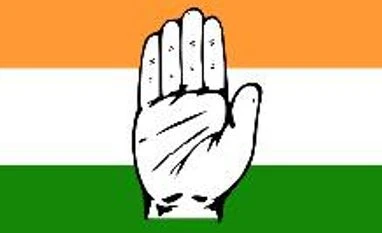However, the government is hopeful of getting support from some opposition parties for the Bill, which is to expected to be taken up next week.
Calling the initial Bill as its “own baby” and hence stating that it was “not opposed” to it, the Congress has termed the NDA Bill ‘incomplete’. The party is also reaching out to regional parties such as the All India Anna Dravida Munnetra Kazhagam (AIADMK) from Tamil Nadu and the Biju Janata Dal from Odisha. The two states are already apprehensive of large-scale revenue loss. The government has said it will take the concerns of opposition-ruled states on board.
According to the Congress, states have no clarity on critical aspects such as the compliance challenges for manufacturers after GST is introduced, the information technology infrastructure required, among others. While the United Progressive Alliance Bill had included petroleum under the GST regime, the NDA version has included it only partially - allowing states to impose value-added tax and the Central excise duty on oil despite it being under the new indirect tax regime.
A senior Congress leader from the Rajya Sabha said: “We have officially stated that we want the Bill to be sent to a standing committee, but since the government enjoys a majority in the Lok Sabha it can have its way. At best, if we manage to rally around other like-minded parties, then we can demand it be sent to a select committee of the Rajya Sabha.”
As things stand, the AIADMK could support the demand for greater deliberation on the Bill as its member of Parliament M Thambidurai has already stated that Tamil Nadu would face revenue loss under a GST regime. While Congress sources concede they are yet to reach out to the Trinamool Congress, they say they would get a favourable response from the BJD.
While tabling the Constitution amendment Bill pertaining to GST in the Lok Sabha, Finance Minister Arun Jaitley had dismissed the notion that GST implementation would lead to any major revenue loss for the states. Jaitley had said GST would simplify and harmonise the indirect tax structure, reduce the cost of production and inflation in the economy.
| THE PLAN AHEAD |
|
You’ve reached your limit of {{free_limit}} free articles this month.
Subscribe now for unlimited access.
Already subscribed? Log in
Subscribe to read the full story →

Smart Quarterly
₹900
3 Months
₹300/Month
Smart Essential
₹810
1 Year
₹67/Month
Super Saver
₹1,170
2 Years
₹48/Month
Renews automatically, cancel anytime
Here’s what’s included in our digital subscription plans
Access to Exclusive Premium Stories
Over 30 subscriber-only stories daily, handpicked by our editors


Complimentary Access to The New York Times
News, Games, Cooking, Audio, Wirecutter & The Athletic
Business Standard Epaper
Digital replica of our daily newspaper — with options to read, save, and share


Curated Newsletters
Insights on markets, finance, politics, tech, and more delivered to your inbox
Market Analysis & Investment Insights
In-depth market analysis & insights with access to The Smart Investor


Archives
Repository of articles and publications dating back to 1997
Ad-free Reading
Uninterrupted reading experience with no advertisements


Seamless Access Across All Devices
Access Business Standard across devices — mobile, tablet, or PC, via web or app



)
